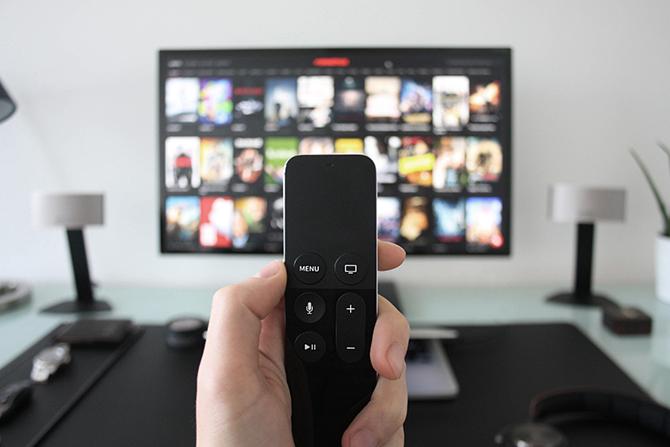At the heart of the issue is the way e-commerce is defined in the current draft policy, reports Neha Alawadhi and Subhayan Chakraborty.

The future of your favourite original shows on over-the-top (OTT) platforms like Netflix, Hotstar and Amazon Prime looks uncertain if the government goes ahead with the draft e-commerce policy in its current form.
Earlier this month, the Department for Promotion of Industry and Internal Trade (DPIIT) decided to extend the date of submission of stakeholder comments on the draft policy, which was first put out on February 23, to March 29.
However, among the major digital players that pushed for the extension, citing concerns over data, ownership and operational rules, Netflix and Hotstar have conspicuously stood out.
At the heart of the issue is the way e-commerce is defined in the current draft policy.
It defines e-commerce as 'buying, selling, marketing or distribution of goods, including digital products and services, through electronic network'.
It further alludes to the foreign direct investment (FDI) policy in e-commerce, also released by the DPIIT, whose press note 2 (2018) says an e-commerce platform in which foreign investment has been made cannot exercise ownership or control over the inventory sold on its platform.
"The definition of e-commerce, as defined by the current draft, will also be applicable to the press note 2. This is making the industry very apprehensive about what the policy means for services companies," said a senior industry body representative, who did not wish to be named.
A DPIIT official said, "Netflix will be treated as FDI under the current rules as most of the production originates out of its US parent company."
While e-marketplaces such as Flipkart and Amazon have managed to dodge the restrictions posed by the press note 2, arguing they operate only as a platform, OTT players find themselves in a more complicated position.
Also, by the definition of services, even companies such as OYO, Ola and Microsoft will be affected by the policy, sources said.
"Digital content in the form of TV shows, films and documentaries can be classified as the inventory of these OTTs and we have been informed that these businesses often own what they stream," the DPIIT official quoted above said.
This means that OTTs may not be permitted to stream their original productions in India.

Netflix has been very vocal about wanting to produce most of its projects in-house, instead of licensing content from other studios.
Similarly, Amazon Prime makes content through its Amazon Studios arm, as do YouTube and Apple.
India's most downloaded OTT Hotstar was also reported to have earmarked a budget of Rs 120 crore (Rs 1.2 billion) for producing original content last year.
These platforms license a host of content from different production houses, but original content gives them better control over their intellectual property.
Netflix, Amazon Prime, and Hotstar did not respond to a request for comment.
"If these platforms are working on a licensing model for what they are broadcasting, the content will not be treated as inventory. However, if they also own the content, the proposed e-commerce rules will also apply to them," said Atul Pandey, partner at Khaitan & Co.
In addition, OTTs will have to adhere to data-localisation norms as specified by the e-commerce policy within a "three-year window from the date of policy coming into effect," Pandey added.
Another issue with OTTs, said a person who works closely with one of these platforms, is that there is no clear oversight authority.
The regulation of content on these platforms has swung between the information and broadcasting ministry, the ministry of electronics and information technology, and the Telecom Regulatory Authority of India.
"The (draft) policy uses e-commerce, electronic communications and digital economy interchangeably. This really creates definitional confusion as e-commerce is only a subset of the digital economy," said the person.
Each agency has at different times tried to regulate these platforms for content, broadcasting, and economic regulations.
The possible addition of OTTs under the e-commerce policy further complicates the scenario.
"The initial idea was that there would a comprehensive classification of goods and services available online before the draft e-commerce policy is made. While it hasn't been done yet, a list may be made after elections and entertainment services may be governed under specific provisions," another government official said.











